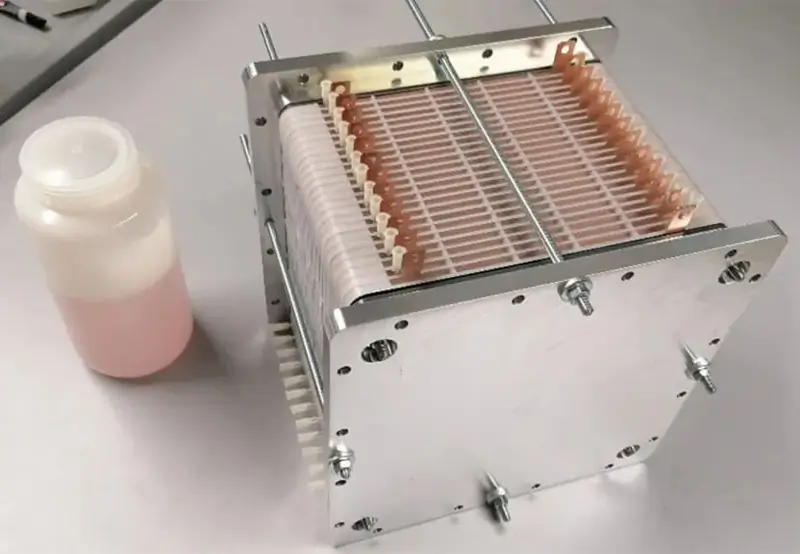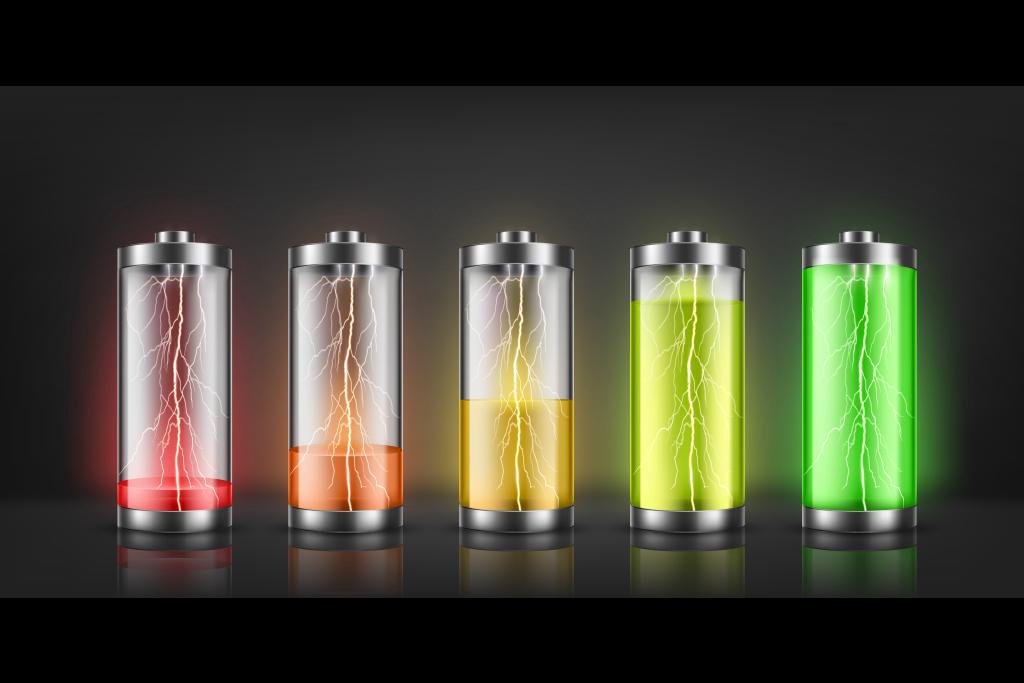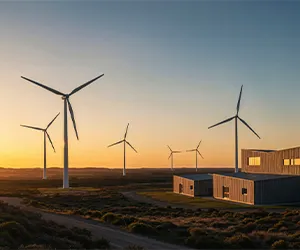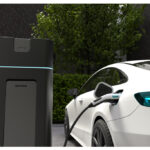Introduction
The global transition to sustainable power solutions is driving the demand for innovative and efficient battery technologies. Although the lithium-ion batteries have taken over the marketplace for many decades, their drawbacks including insufficient resources, inefficiency, safety issues, environmental concerns among others have compelled scientists to seek alternative energy storage options. Among these emerging technologies, the zinc-ion battery is proving to be a game-changer in the world of renewable energy battery storage. INFAB, a pioneer in next-gen battery research, has introduced a groundbreaking zinc-ion battery that promises to revolutionize green energy storage.
With the highest safety, low costs, and environmentally friendly readings, zinc-ion batteries to lithium give a better argument in the future energy storage demand. As small-scale solar solutions in the homes, as medium scale storage in the power grid, or high-demand portable electronic devices, INFAB zinc-ion technology has a next-generation battery solution with much better performance than existing lithium-ion options. This blog explores how INFAB’s revolutionary zinc-ion battery is paving the way for a cleaner, greener, and more sustainable future.

What is a Zinc-Ion Battery?
A zinc-ion battery is an advanced energy storage system that uses zinc ions as the charge carriers, as opposed to lithium or lead-acid technologies. These batteries are made of zinc anode, water-based electrolyte and cathode material that exchanges ions efficiently. The lithium-ion batteries are dependent on the rare metals such as cobalt and nickel which are doomed to eclipse. But since Zinc-ion batteries exploit the abundant materials of low prices, they make the giving choice to sustainable power solutions.
The advanced design of INFAB also increases the energy density, efficiency, and life of the zinc-ion battery by overcoming critical issues of existing battery technology. With a clear advantage of being naturally stable and accessible, INFAB puts zinc to the use by creating a scalable and practical battery solution to their next-gen solution to the wide-spread adoption in renewable battery storage.
Why Zinc-Ion Batteries Are a Game-Changer
1. Enhanced Safety Compared to Lithium-Ion
- The water-based, non-flammable electrolyte used in zinc-ion batteries significantly reduces the risk of fire.
- Compared to lithium-ion batteries, which are more prone to thermal runaway, zinc batteries offer superior thermal stability.
2. Cost-Effective and Sustainable
- In contrast to nickel, cobalt, and lithium, zinc is a plentiful and reasonably priced material.
- Compared to lithium mining, zinc extraction and processing have a smaller environmental impact.
3. Superior Cycle Life and Efficiency
- INFAB’s proprietary technology makes zinc-ion batteries ideal for long-term energy storage by extending their lifespan.
- High charge retention and efficiency reduce energy loss during storage and discharge cycles.
4. Scalability for Renewable Energy Storage
- Because zinc-ion batteries perform well in large-scale applications like grid storage, they are an excellent choice for battery storage for renewable energy.
- Their seamless integration with solar and wind power systems further solidifies their role in the transition to green energy.
Zinc-Ion Batteries vs Lithium: A Comparative Analysis
Zinc-ion batteries are appearing as a viable alternative to lithium-ion batteries with distinctive strengths in the areas of safety, cost, and sustainability. In contrast to lithium-ion batteries that are based on limited and volatile materials, zinc-ion batteries have water-based electrolytes and unlimited zinc metal as their constituent elements, and thus are non-flammable and resistant to overheating or thermal runaway. This sharply improves their safety record, especially for stationary energy storage. From a cost point of view, zinc is much cheaper and more easily available compared to lithium, cobalt, or nickel, lowering material and supply chain risks significantly. Zinc-ion batteries are also more eco-friendly since they do not suffer from the environmental degradation and energy consumption that accompanies the mining of lithium. But lithium-ion batteries are currently superior to zinc-ion in energy density and cycle life, and hence are more appropriate for high-drivetrain applications such as electric vehicles and consumer electronics. Although zinc-ion technology is not yet commercialized in volume and is still evolving, its vast potential to be used in grid storage and low-cost backup power systems is strong enough to justify ongoing research and development competition towards safer and cleaner battery solutions.
Applications of INFAB’s Zinc-Ion Battery
INFAB’s breakthrough in zinc-ion battery technology opens up numerous possibilities across different industries. Key applications include:
1. Grid-Level Energy Storage
- Ideal for integrating with renewable energy sources such as wind and solar farms.
- Provides stable energy supply by mitigating fluctuations in power generation.
2. Residential and Commercial Energy Storage
- Supports homes and businesses in achieving energy independence.
- Works seamlessly with rooftop solar systems for efficient energy use.
3. Electric Vehicles (EVs) and Transportation
- A potential alternative to lithium-ion for next-generation EV batteries.
- Offers a safer and more sustainable solution for electric mobility.
4. Industrial and Remote Energy Solutions
- Suitable for powering remote operations where reliable energy storage is essential.
- Reduces dependency on fossil fuels for backup power.
- offering a sustainable and efficient solution for clean energy storage.
Conclusion
As the world shifts towards sustainable power solutions, the need for innovative and reliable energy storage systems has never been greater. INFAB’s zinc-ion battery is a revolutionary advancement in renewable energy battery storage, offering a safer, cost-effective, and eco-friendly alternative to lithium-ion technology. With superior safety, affordability, and scalability, zinc batteries vs lithium are emerging as the future of green energy solutions.
By integrating INFAB’s next-gen battery into solar grids, EVs, and industrial applications, we move closer to a future powered by clean, renewable energy. Stay ahead of the curve and embrace the zinc-ion battery revolution today!
Frequently Asked Questions (FAQs)
Zinc-ion batteries operate using a zinc anode, a cathode material, and a water-based electrolyte. During charging, zinc ions move from the cathode to the anode. When discharging, they move back, releasing stored energy efficiently and safely.
Yes, zinc-ion batteries are safer, more cost-effective, and environmentally friendly. While lithium-ion has a higher energy density, zinc-ion batteries are ideal for renewable energy battery storage and grid applications due to their stability and longevity.
While still in early development for EVs, zinc-ion batteries have the potential to become a viable alternative, especially for heavy-duty and stationary applications where safety and cost are key considerations.
Yes, zinc-ion batteries are easier to recycle compared to lithium-ion, as they do not contain toxic or rare materials. Their eco-friendly composition aligns with sustainable power solutions.
INFAB is actively working on large-scale production and aims to bring its next-gen battery to market soon. Stay tuned for updates on commercial availability.












